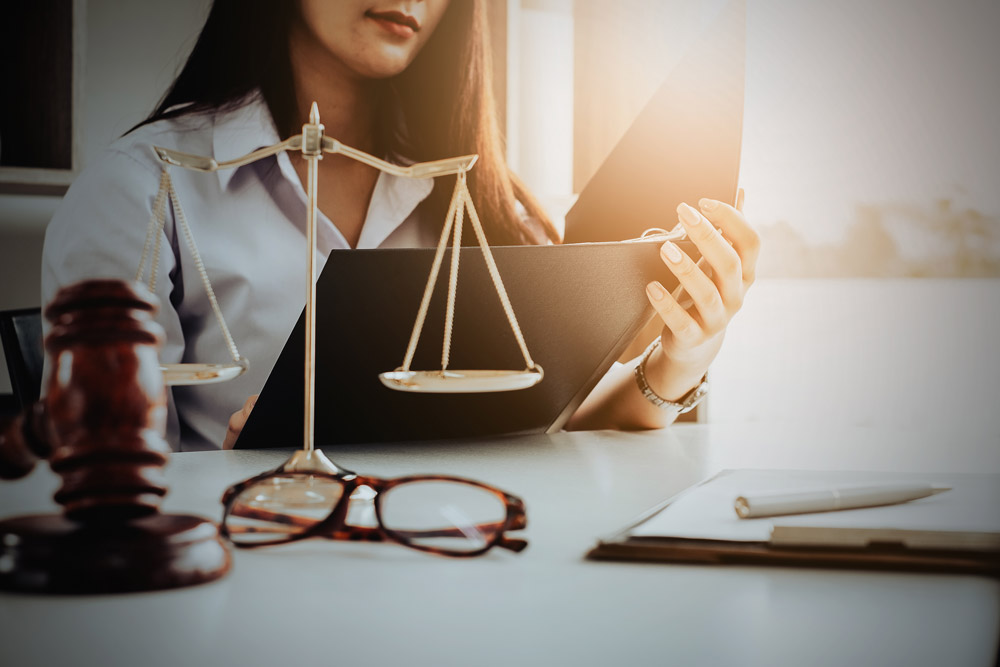Our Work
You may follow the activities of JUSTICIA, posted at www.justiciadh.org and in the media, where you can learn about our efforts, for example, but not limited to, lately:
You may follow the activities of JUSTICIA, posted on www.justiciadh.org and in the media, where you can learn about our efforts, for example, but not limited to, lately:
- The success of introducing the concept of criminalizing sexual harassment into the Lebanese legislation and punishing it according to a law approved upon the proposal drafted by JUSTICIA and presented by MP Dr. Enaya Ezzedine, in her capacity of president of the Women and Child Committee: approved and now in effect.
- The success in lifting restrictions on minors who were handcuffed when they were taken to and from prisons, according to a Law proposal prepared by JUSTICIA and presented by MP Dr. Michel Moussa in his capacity of president of the Human Rights Committee: voted and becoming effective now.
- JUSTICIA also prepared a Law proposal for women’s Quota Law in favor of the network of associations working on its approval, coordinated by the 50/50 NGO and with the support of the United Nations, accompanied by an advocacy campaign in the last few months.
- Likewise for the mother’s authorization to open accounts for her minor children, and travel them without father prior consent.
Although JUSTICIA succeeded in making these last two demands established on the administrative level, it has also prepared a Law Proposal that is currently under approval and followed up until it comes to light, similar to other human rights demands that JUSTICIA is working on… For example, protecting the environment by preparing the necessary texts, including what she submitted to the Terre Liban Association. - A working team from JUSTICIA has developed an economic rescue plan that is published and is constantly updated with experts, and a sectoral background for it has been previously published in a book – an executive study distributed by JUSTICIA to those concerned; we currently working with the competent ministerial committee that was recently formed to adopt it, including proposals to relieve the burden on depositors in banks.
- The same applies in terms of contributing to the comprehensive national plan for Human Rights and highlighting the loophole in the electoral law through training courses for the forces of change, the last of which was a lecture, in particular, to enable civil society institutions concerned with elections to monitor early electoral violations, upon the invitation of the accompanying International Organizations (UNDP/EU/USAID).
- In addition to many Human Rights and media initiatives and publications that expose unconstitutional and illegal practices, the latest of which, during the period of the Corona pandemic, is a book entitled “Subjecting politics to the rule of law”, which is the 14th book of JUSTICIA, and such several books were written by the President of the Foundation; all these publications are available on this website, including People’s Rights Handbook series: in the municipality, in health, in work, and in the objection to taxes… through simplified questions and answers with comparison tables and forms for petitions, requests, and objections on which citizens can rely, where thousands of copies have been distributed on them.
For more examples of our activities, you may visit our page on Facebook (https://www.facebook.com/JusticiaFoundation)
JUSTICIA’S MAIN ACTIVITIES AND ACCOMPLISHMENTS
1. Launching a roadmap through strategic plans for the future of Lebanon in each of the following fields: health, environment, education, labor, industry, agriculture, oil and gas, and tourism… prepared by a group of lawyers, activists, and university students under the supervision of JUSTICIA’s President Dr. Paul Morcos for three years (2016-2018) published in JUSTICIA’s series of publications (number 10) in 134 pages. A number of the concerned ministries have collaborated with the researchers and supplied them with the latest numbers and studies that they have so that the new work is cumulative and they provided preliminary readings for the studies as well.
The sectorial studies address directly the problems faced by each sector and offer, in numbers, statistics and comparisons, solutions with the necessary implementation cost and duration that it takes, and the official institutions which would be subject to cancellation or modification or that requires to be established.

2. Coordinating and redrafting the National Human Rights Action Plan for Lebanon for the Lebanese Parliament with the support of the United Nations Development Program (UNDP) in Lebanon and the Office of the High Commissioner for Human Rights (OHCHR) (2008 – 2013):
The Action Plan covers twenty-three topics related to different human rights and development needs in Lebanon. The topics involve:
- Women’s Rights
- Children’s Rights
- Labor Law and Social Security
- Right to Access to Culture
- Right to Education
- Rights of Migrant Workers
- Right to Adequate Housing
- Rights of People with Disabilities
- Right to Health
- Right to a Safe and Healthy Environment
- Forced Disappearance
- Prisons
- Independence of the Judiciary
- Wiretapping
- Torture
- Juvenile Justice
- Right to Freedom of Opinion and Expression
- Freedom of Association
- Criminal Law
- Criminal Procedure
- Death Penalty
- Economic and Social Rights of Palestinian Refugees
- Economic and Social Rights of Non-Palestinian Refugee
3. Each study states the international conventions applicable to every topic, the legal status and the legislation in Lebanon, the current status and the actions Lebanon is taking to address and/or promote each topic, and finally the study puts forward relevant recommendations for future action.

4. Participating in the Universal Periodic Review (UPR) before the Council of Human Rights in Geneva, Switzerland on December 10, 2010. JUSTICIA also participated in the preparations for the review and assisted in writing the report of the Coalition of Civil Society Organizations working on the UPR in Lebanon. Supporting legal aid for low-income citizens by presenting several programs and conferences with the assistance of the American Bar Association and the Arabic Council of Legal and Judicial Studies (2010- 2011).
5. Providing the World Bank with specialized studies on enhancing the delivery of justice sector services to the poor and resolving land-related disputes in Lebanon.
6. Participating in the Universal Periodic Review (UPR) before the Council of Human Rights in Geneva, Switzerland on December 10, 2010. JUSTICIA also participated in the preparations for the review and assisted in writing the report of the Coalition of Civil Society Organizations working on the UPR in Lebanon.
7. Supporting legal aid for low-income citizens by presenting several programs and conferences with the assistance of the American Bar Association and the Arabic Council of Legal and Judicial Studies (2010- 2011).
8. Providing the World Bank with specialized studies on enhancing the delivery of justice sector services to the poor and resolving land related disputes in Lebanon.
9. Facilitating citizens’ access to justice by including on the JUSTICIA website answers to common questions and complaints (along with samples of request forms to the Public Administration) by authoring books and publications enlightening citizens about their rights and how to assert them. The “To Be Equal Under the Law” project was accomplished with the support of the Amideast/USAID program. (2010-2011).
10. Drafting a proposed law to enable mothers to grant their nationality to their children as part of the campaign led by the National Committee for Women’s Rights with the support of the UNDP (2009).
11. Authoring the study that sets forth the legal means by which women could open bank accounts for their minor children in Lebanon in connection with the campaign organized by the Institute of Progressive Women (IPW). The study was adopted by the Banks Association of Lebanon (2010).
12. Enabling minors to travel with their mothers, as part of the campaign organized by the IPW. The study has been adopted by the General Directorate of General Security. (2010-2011).
13. Project leadership coalition of civil society organizations in Lebanon: “Promotion of human rights in Lebanon through international review mechanisms” with the support of the Arab Human Rights Fund (2011-2012).
14. Delivering English language courses (American Corners) in remote areas of Lebanon, a project funded by the Middle East Partnership Initiative (MEPI) (2010).
15. Providing study and draft law for the “Association of the Retirees” for tax exemptions (2012).

16. Coordinating with other Lebanese civil society organizations and cooperating with international organizations, mainly the European Union and the regional office of UNESCO to promote development programs and support citizen rights.
17. Organizing and participating in awareness programs, projects, and conferences in Lebanon and abroad.
18. Launching of books and publications on the definition of citizen rights and how to practice their rights:
- Lebanese politics under the authority of the rule of law, JUSTICIA publications, 316 p., Beirut, 2017.
- Strategic plans for Lebanon’s future, JUSTICIA publication,134 p., 2016.
- Military court and fair trial, JUSTICIA publication in collaboration with the German organization Konrad Adenauer, 191 p., Beirut 2014.
- Civil marriage- Mechanism under the lack of legislation by the Lebanese government, the idea of Dr. Walid Slaybi, publication of the Lebanese organization for civil rights, 103 p., 2014.
- Lebanese banks facing legal and international obstacles: banking secrecy, money laundering, Islamic banks, electronic services, and tax evasion, JUSTICIA publication, 299 p., 2013.
- The culture of rights: the constitution, human rights, rationalization of politics, public matters, conciliation of the people with the government, the banking system, JUSTICIA publication, 475 p., 2013.
- Your rights at work (24 questions and answers with a specimen of notices and lawsuits), Beirut, 2011, 69 p., hard copy and soft copy available on www.justiciadh.org.
- Your Guide in Health: patients’ Rights and Obligations, the medical Body’s Rights, obligations and Responsibilities (40 questions and answers with judicial sentences and specimen of requests) Beirut, 2010, 87 p., hard copy and soft copy available on www.justiciadh.org.
- A to Z of trade and industry (37 questions and answers with a specimen of applications and transactions), Beirut, 2010, 94 p., hard copy and soft copy available on www.justiciadh.org.
- Municipal Rights (More than 100 questions and answers with specimen of requests and objections, and municipalities articles), Beirut, 166 p., 2011, hard copy and soft copy available on www.justiciadh.org.
- Taxpayers’ Rights: what are your rights and duties? (11 main titles enhanced by examples), Beirut. 80 p., 2011, soft copy available on www.justiciadh.org.
- Bank Customers’ Rights. (63 questions and answers), Beirut, 134 p., 2011, hard copy and soft copy available on www.justiciadh.org.
19. Technical Assistance Facility (LERII-TAF) Program Lebanon Economic Reform and Infrastructure Investment in order to provide insights for the preparation of an economic base for the new government to enter negotiations securing future international financing and aligned with urgent sectorial reforms needed in Lebanon, Dr. Paul Morcos President of JUSTICIA foundation, was part of national experts in Lebanon with the “LERII-TAF” who’s organized a program by roundtable discussions with a dialogue forum, ensuring a wide and diverse spectrum of the judicial system and legal sector insights and points of view. If you want to play, we definitely recommend visiting – https://online-roulette.nz/. The LERII-TAF program was formed by many international presentations to the Foreign, Commonwealth & Development Office (FCDO) and the International Community (IC), organized by the National Experts through roundtable discussions. Dr. Paul Morcos, president of JUSTICIA foundation, was engaged as an expert in providing information resources and enhancements for the ground and commitments to convey the concept note and the policy brief, empowering the roundtable discussion and assurance through the facilitation that LERII-TAF acquires adequate information to be able to elaborate a strong evidence-based policy paper that would serve as a basis for future priority reforms, and developing the course of action plan for the guide inclined toward in the roundtable discussion.
